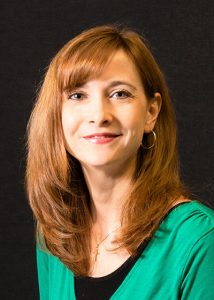 We recognized East Stroudsburg University as one of the 62 Best Schools with Online ABA Master’s and Certificate Programs, adding them to our list of top recommendations for students in the area.
We recognized East Stroudsburg University as one of the 62 Best Schools with Online ABA Master’s and Certificate Programs, adding them to our list of top recommendations for students in the area.
We were excited to hear from Dr. Caroline DiPipi-Hoy, a faculty member at East Stroudsburg University who took the time to answer a few questions about how the school works to create a great student experience that helps prepare graduates for a career in applied behavior analysis.
East Stroudsburg University Programs:
- M.Ed. with ABA concentration
- ABA certification

Professor/Faculty Name: Dr. Caroline DiPipi-Hoy
Tell us about the types of students you see come through your program. Are you seeing more non-traditional students and career changers coming from other fields?
Caroline: We see many students come into our program after graduating from our undergraduate Rehabilitative and Human Services program. A majority of these students are traditional students. We have had other students who come to our program from the workforce because they need additional training and education to maintain their current positions or to advance in their career.
What areas of practice are you seeing graduates going into? Do they tend to find jobs in the local school districts or more often join private practices?
Caroline: A majority of our students tend to find employment in local school districts if they are certified as teachers. Students who are not certified join private practices. Some have even started their own private practices.
What are some of the things you love most about the ABA program at your university – the kind of things you’d like future students to know about as they consider their options?
Caroline: I love the fact that our program is small enough for students to get to know our faculty very well. We are able to develop great relationships with our students and we get to know them on a personal and professional level. This is particularly helpful as students begin to think through their future career in ABA. Our faculty have all worked in the field and are active in scholarly research and service. This allows them to provide guidance to students who are working to find their niche in a field with many opportunities.
What do you feel are the most pressing issues in ABA today, and how does the program at your school prepare graduates to address these issues?
Caroline: I feel that a pressing issue today is the way different individuals perceive ABA practices. Not everyone agrees with the effectiveness of ABA and there are many myths and misconceptions about it floating around the professional world. This can be confusing for caregivers and parents. We address this issue right from the beginning of our program when students take their first class and continue to discuss this throughout each course. We encourage students to focus on the empirical research supporting ABA practices.
The university offers an ABA certification program. Does the program function as a stand-alone program or a concentration option for graduate special education students?
Caroline: Students with a Master’s degree have the option of just taking the ABA course sequence to prepare them for BACB certification. Students who come in without a Master’s degree are able to complete a M.Ed. with ABA concentration.
How does the ABA certification open up more professional opportunities?
Caroline: The ABA certification provides numerous professional options to work with individuals of different ages, abilities and needs. Employment positions are numerous and allow for flexibility in terms of location and the nature of the position.
Please feel free to add anything else you would like potential students to know about your program and that would be good for them to consider before choosing a program.
Our program is great for students who want to develop strong relationships with faculty. Our faculty are focused on scholarly work and service to the field. Our students definitely benefit from that.
We also have a well-established transition program. Our CILLS program (Career Independent Living and Learning Studies) provides our students with the opportunity to work with individuals who are transitioning from high school to a post-secondary environment and are currently attending ESU in order to experience a college environment. Our students are able to mentor the participants in this program through a wide variety of paid and unpaid positions.
Students who are interested in working with young children may observe and interact with children at Mekeel Child Care center, a daycare facility on campus that serves ESU faculty, staff and students and the surrounding community.
Check out our full interview series here to see what other professors and faculty are saying about their ABA programs.





